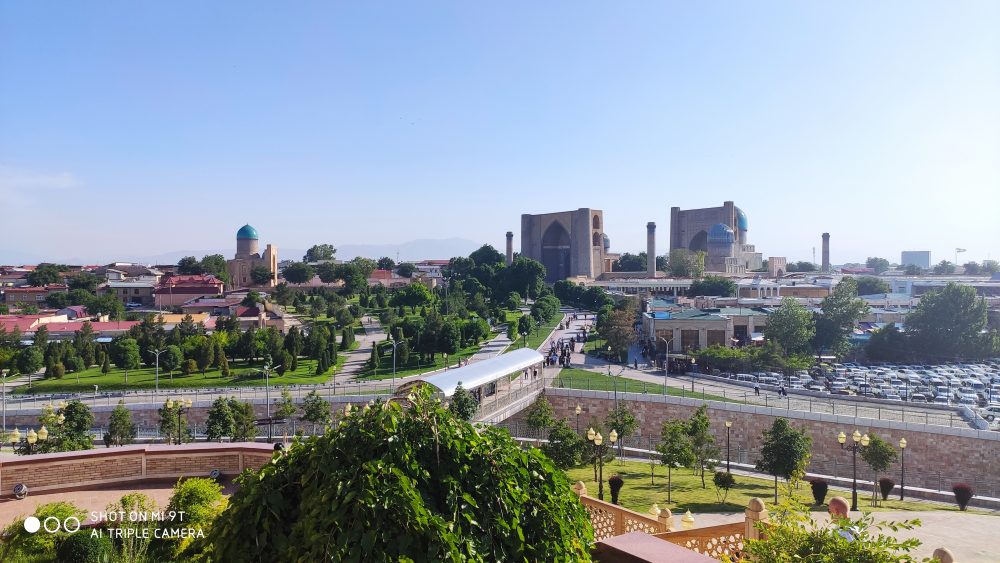Assoc. Prof. H. Deniz Genç, hdgenc@medipol.edu.tr
Ayşe Nazlı Söylet, PhD Candidate, ansoylet@medipol.edu.tr
A very rich cultural and historical background and recent reforms in all spheres of the country side by side summarizes the spirit of Uzbekistan. Experiencing and learning all the controversial and also coherent dynamics of the country through conducting a productive fieldwork has been enlightening indeed. Since the beginning of our secondment, Westminster University staff especially Akhtem, Kush and Bashorat and others were very helpful and kind with everything needed to be sorted out. They assisted us with settling into dorms and the office at the university along with all other things that helped us to feel comfortable. We are truly grateful for their efforts. Besides feeling comfortable, it’s rewarding to see Horizon Projects do foster good partner relations and enhance the connection between partnering university staff. The 1st two weeks were part of the hottest season in Uzbekistan in which the weather went up to 43*C degrees on some days. These days are called Çille in Uzbek (pronounced like Chil-lea) and it was difficult to hold on to living. However, we took that time to start researching the institutions we are going to interview while staying indoors almost all the time.
We planned to work on ‘Norm diffusion and norm localization in the field of international migration law in Uzbekistan’. Since The Academy of the General Prosecutor’s Office of the Republic of Uzbekistan holds a very important position in this area of work, we had our first official meeting with the Academy on the 21st of July to talk about the research that we are conducting and to strengthen our relations with Academy’s staff whose work is related to our research. Our meeting was arranged by the Deputy Head of the Academy Mr. Uygun Uchkunovich and he supported our further integration into the network of NGOs and International Organizations operating in Uzbekistan and also state institutions when possible. We are very grateful for their support as a partner institution and himself for taking the initiative to support our fieldwork. The next day we had a great chance to attend a regional videoconference on “Human Trafficking and Technology in Central Asia” held by UNODC and partnering institutions. It was a very efficient meeting for us to understand the current situation, latest developments, and planned progress both in the region and in Uzbekistan. In addition, the meeting played a very good 1st step for us to meet the prominent NGOs working in this field. Through this meeting and through deepening our desk research we realize that there is a lot more to research about even in this one particular field.
(detailed information can be found in the link: https://www.unodc.org/centralasia/en/unodc-held-a-regional-videoconference-on-human-trafficking-and-technology-in-central-asia.html)
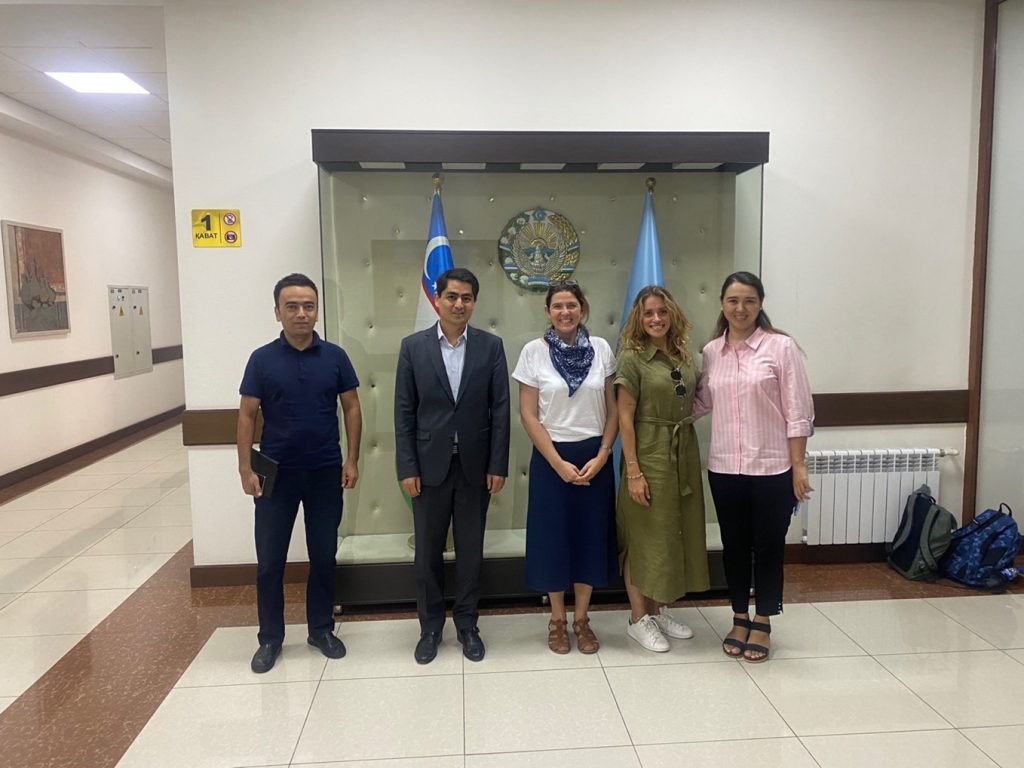
To us, one of the most distinct benefits of secondments is that you are present at the place on which you are conducting research. To be present in the place gives you the chance to observe societal, economic, mental, and cultural dynamics and shape your perspective through these experiences you have. Now being able to compare our thoughts before coming to Uzbekistan and our current observations, there is a huge difference between the two perspectives. This difference is also relevant with the research processes. Because most of the research subjects in social sciences are context-dependent, which makes it very important to understand the context itself before reaching to any conclusions. Therefore, trying to understand the context by visiting Uzbekistan and spending some time here, has been an eye-opening and explanatory experience for us.
In the following weeks, we had a great chance to meet with Westminster International University of Tashkent’s Rector, Prof. Bakhrom Mirkasimov, who provided us valuable information about the history of the university and of the country. We also exchanged our research topics and areas of interest. We are grateful for his hospitality and kindness.
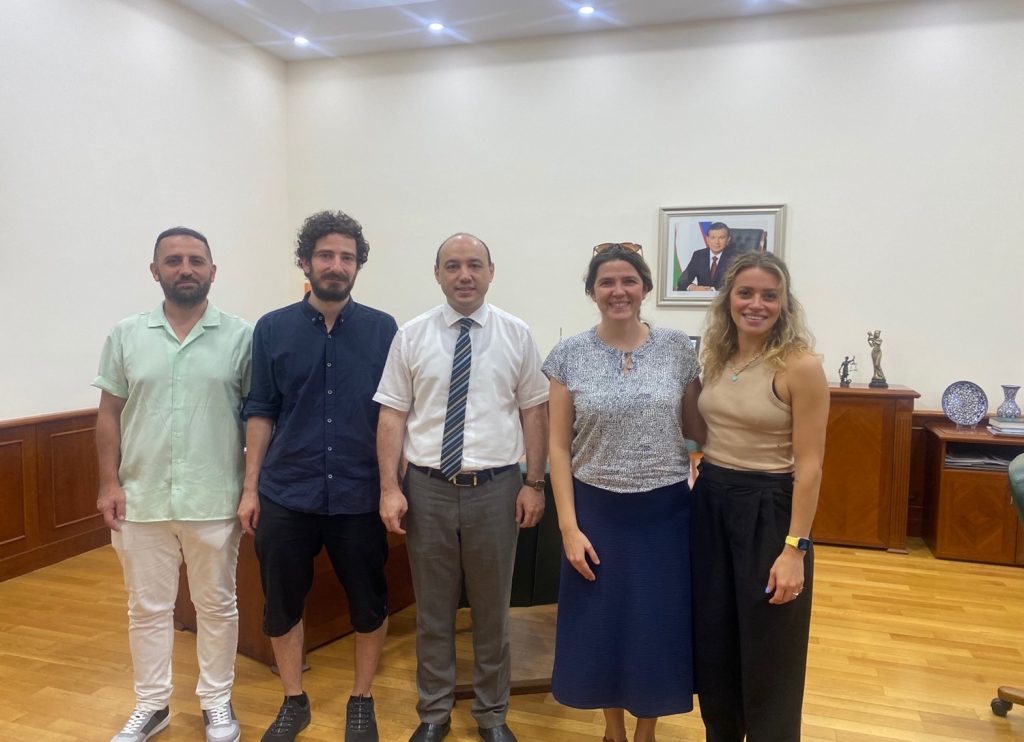
During the same days, we had couple of more productive meetings with variety of international organizations. One of the organizations that accepted our meeting request was International Organization of Migration (IOM), Tashkent office. The head of the office Mr. Sanjarbek Toshbaev and programme assistant Mr. Shahzod Nazarov were very kind that they share a lot of helpful information about the purpose, projects, and prospective work of IOM in the country and provided us great number of insights about the transformation that Uzbekistan is going through for several years. To understand this changing social, political, and economic context from inside and its relationship with our field of research is at utmost importance for our work.
In the last couple of years Uzbekistan is experiencing a great number of legal and political reforms emerging from the changing direction of political will. Country’s demand for development in all spheres of life and political will to fulfill these demands are effective in the process of these reforms. Regulation of international migration and prevention of trafficking in persons and forced labor are other issues that Uzbek government is trying to deal, especially with more established and concrete laws and new legal arrangements through variety of partnerships. The government is getting a lot of support from international organizations for field work, training of local NGOs, forming up international coordination projects and spreading the know-how to local government units. All these efforts are becoming visible both in the field and in the legal framework concerning our research. It is truly helpful to be able to gather this information from IOM as they play a very important role in lots of projects in the field of migration. Once again, we appreciate their time and effort.
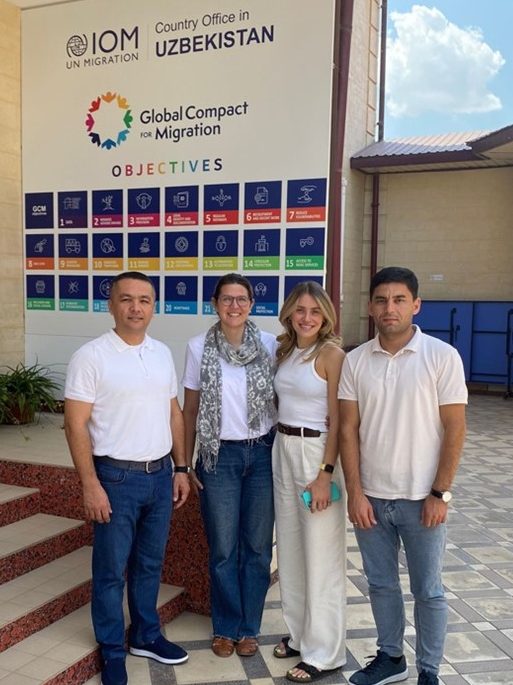
Outside of work hours, we tried to discover the gems of Tashkent in which we really enjoyed country’s delicious and rich cuisine, wide boulevards and public spaces and amazingly green city center with lots of parks. And yes, Uzbeks are the best plov (rice food) makers in this world! There are lots of nice patisseries with a suitable environment to work inside. One should not forget the serious heat wave that can smack you down on some days. That’s also why cool patisseries and parks are life saviors! We also took time to discover local bazaars that people sell fresh fruits and veggies alongside with dried fruits and nuts. As we are coming from Turkey, local bazaars are familiar to our daily lives which also gave us a perspective to compare the differences and enrich our bazaar culture. From this angle, it is a very interesting experience for us to spot the common components between two countries as we shared lots of ancient roots. Many cultural characteristics, traditions and behavioral codes feels like home on one hand and on the other, we are total foreigners in this society. Still, from cooking elements to celebration habits, we discovered countless of traits in common between Turkish and Uzbek society that we enjoyed while discovering. Apart from the benefits for our research, it has been a very fruitful and meaningful journey for both of us. For an entertaining and illuminating read to know better about Central Asian countries, one can check the book called Sovietistan: Travels in Turkmenistan, Kazakhstan, Tajikistan, Kyrgyzstan and, Uzbekistan by Erika Fatland.
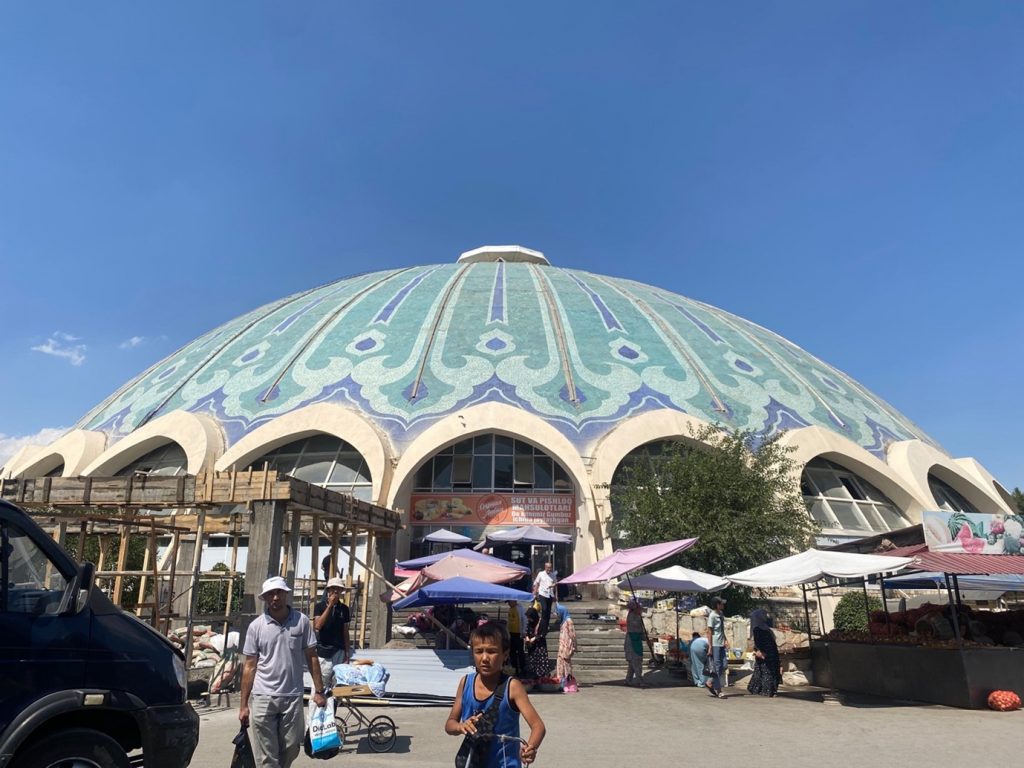
In the next couple of days, we were able to manage two important online meetings with USAID and related organization Winrock International and ICMPD (International Center for Migration Policy Development). All these institutions were very effective in the process of transformation of the migration policy of Uzbekistan and became one of the most significant project partners throughout the time. From USAID and Winrock International Mr. Ruslan Ramanov and Mrs. Nodira Saidkarimova provided us with great deal of insights about their partnership processes with Uzbekistan and how they developed their relationship and how effective are these multi-partner projects to create a stronger push for change together with the political will. Meeting with ICMPD conducted with Mr. Radim Zak, Head of Region Eastern Europe and Central Asia. ICMPD currently has a project called Border Management in Central Asia (BOMCA 10) with participation of all Central Asian countries with the aim of supporting cross-border cooperation and improving living conditions for people living in border areas. Therefore, they are well informed about the legal processes and current developments in the field of migration and trafficking in persons throughout the region. He also provided us with very useful insights about how they are establishing partnerships with governments of all Central Asian countries and their agendas about the topic. All these meetings provided valuable insights to us for understanding the regional developments and specifically the developments in Uzbekistan.
We are very grateful to everybody who support our research in Uzbekistan with all their efforts. We are also grateful to Rustamjon Urinboyev and the project team for providing such a good opportunity for us.

